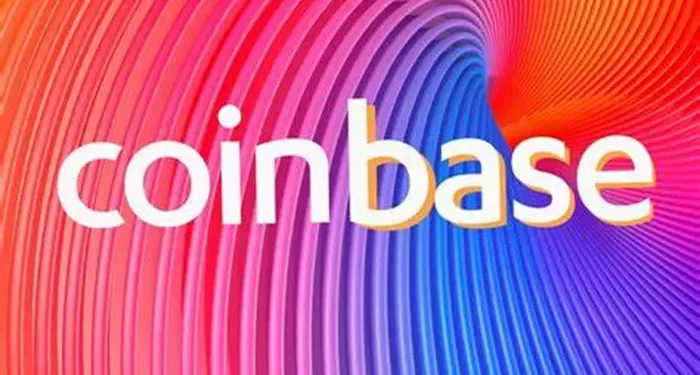Coinbase, one of the most well-known cryptocurrency exchanges in the world, is widely used by both beginners and experienced traders alike. As with any financial platform, understanding the fees associated with using Coinbase is crucial for users who want to make informed decisions about trading cryptocurrencies. In this article, we will explore the various fees charged by Coinbase, the reasons behind them, and how these fees compare with other exchanges in the market. By the end of this guide, you’ll have a comprehensive understanding of Coinbase’s fee structure and how it might affect your trading experience.
What is Coinbase?
Coinbase is a digital currency exchange that allows users to buy, sell, and store various cryptocurrencies, including Bitcoin, Ethereum, Litecoin, and many others. Founded in 2012 by Brian Armstrong and Fred Ehrsam, Coinbase has grown to become one of the largest and most trusted platforms for cryptocurrency trading. The platform is known for its user-friendly interface, which makes it a popular choice for beginners who want to enter the world of cryptocurrency trading.
Coinbase offers a variety of services, including cryptocurrency purchases, storage, and trading tools. Additionally, it has become a gateway for many people to access the world of digital assets, thanks to its ability to link with traditional bank accounts and credit cards. Despite its popularity, many new users wonder about the fees associated with using Coinbase.
Understanding Coinbase Fees
Coinbase charges users fees for a variety of activities on its platform. These activities include buying, selling, and transferring cryptocurrency. The platform’s fee structure can be complex, with different fees applying depending on the type of transaction, the payment method used, and the geographical location of the user. In this section, we will break down the key types of fees you may encounter when using Coinbase.
1. Coinbase Trading Fees
The most common fees that users encounter on Coinbase are trading fees. These fees apply when you buy or sell cryptocurrencies on the platform. Coinbase uses a fee structure that is based on a combination of factors, including the size of the trade, the payment method used, and the user’s location.
Fee Percentage Structure
Coinbase charges a flat fee for transactions below a certain threshold. For larger transactions, a variable fee is applied, which is based on the size of the trade. Here’s a breakdown of how the fees work for different transaction amounts:
For transactions less than $10: Coinbase charges a flat fee of $0.99.
For transactions between $10 and $25: The fee is $1.49.
For transactions between $25 and $50: The fee is $1.99.
For transactions between $50 and $200: The fee is $2.99.
For larger transactions above $200, Coinbase uses a percentage-based fee structure, which can vary depending on the size of the transaction and the user’s location. Typically, the percentage fees range from 1.49% to 3.99% for buying and selling cryptocurrencies.
Payment Method Impact on Fees
The payment method you choose when making a trade also impacts the fees you pay on Coinbase. Generally, Coinbase offers several payment options, including:
Bank Account Transfers: Using a bank account to fund your cryptocurrency purchase typically incurs lower fees, around 1.49% per transaction.
Credit and Debit Cards: If you use a credit or debit card to purchase cryptocurrencies on Coinbase, the fees are typically higher, usually around 3.99%. This is because credit card transactions are often seen as higher risk, and Coinbase needs to cover the costs associated with them.
PayPal: Coinbase also allows users to purchase cryptocurrencies using PayPal, but this option may come with additional fees that are typically higher than bank transfers or card payments.
2. Coinbase Pro Fees
Coinbase Pro (formerly known as GDAX) is an advanced trading platform that offers lower fees than the standard Coinbase platform. It is designed for more experienced traders who need access to a range of advanced features, such as charting tools and order types. Coinbase Pro uses a maker-taker fee structure, which rewards users who provide liquidity to the platform by making market orders.
Maker Fees: If you place an order that adds liquidity to the order book (i.e., a limit order), you are considered a “maker” and will typically pay a lower fee. The maker fee starts at 0.50% and can go as low as 0% depending on your 30-day trading volume.
Taker Fees: If you place an order that takes liquidity from the order book (i.e., a market order), you are considered a “taker” and will be charged a slightly higher fee. Taker fees typically start at 0.50% and decrease as your trading volume increases.
The more you trade on Coinbase Pro, the lower your fees can become. For example, if you have a trading volume of over $100 million per month, your maker and taker fees can be reduced to 0.00% and 0.04%, respectively.
3. Withdrawal Fees
Another type of fee on Coinbase is the withdrawal fee. These fees apply when you transfer your cryptocurrency from your Coinbase account to an external wallet. Coinbase charges different withdrawal fees depending on the cryptocurrency you’re withdrawing.
Bitcoin (BTC): The withdrawal fee for Bitcoin is typically around 0.0005 BTC, although it may vary depending on network congestion.
Ethereum (ETH): The withdrawal fee for Ethereum is usually around 0.005 ETH.
Other Cryptocurrencies: The withdrawal fees for other cryptocurrencies vary depending on the specific coin, but they are generally lower than those for Bitcoin and Ethereum.
These withdrawal fees are necessary to cover the transaction costs on the blockchain network. Coinbase doesn’t charge additional fees on top of the blockchain transaction fees, but these costs can fluctuate based on network activity.
4. Spread Fees
In addition to the explicit trading fees, Coinbase also earns revenue from the “spread” on cryptocurrency transactions. The spread is the difference between the buying price and the selling price of a cryptocurrency. This spread is typically around 0.50% but can vary depending on market conditions.
For example, if the price of Bitcoin is $50,000 on the exchange, but the buying price is $50,250 and the selling price is $49,750, the spread would be $500. This means that you are effectively paying a premium when buying and receiving a discount when selling. The spread is an indirect fee that is not explicitly listed but can still add up over time, especially with frequent trading.
5. Staking Fees
Coinbase also offers a staking service for certain cryptocurrencies, such as Ethereum 2.0 and Tezos. Staking allows users to earn rewards for participating in the network’s consensus mechanism. When you stake your cryptocurrency on Coinbase, the platform charges a fee for its services.
Tezos (XTZ): Coinbase charges a 25% fee on staking rewards for Tezos.
Ethereum 2.0 (ETH): Coinbase charges a 25% fee on staking rewards for Ethereum 2.0.
These fees are used to cover the costs associated with operating the staking service, such as network maintenance and infrastructure costs.
How Do Coinbase Fees Compare to Other Exchanges?
While Coinbase is one of the most popular cryptocurrency exchanges, its fees are not necessarily the lowest on the market. There are other exchanges, such as Binance, Kraken, and Gemini, which may offer lower fees, particularly for large traders.
Binance: Binance is known for its low trading fees, starting at 0.10% for both makers and takers. Additionally, users can reduce their fees by holding Binance Coin (BNB) and using it to pay for transaction fees.
Kraken: Kraken offers competitive fees, with maker and taker fees starting at 0.16% and 0.26%, respectively. The platform also provides volume-based discounts, similar to Coinbase Pro.
Gemini: Gemini has a flat fee structure for transactions under $200, with fees ranging from $0.99 to $2.99, depending on the transaction size. For larger trades, fees are based on a percentage structure, ranging from 0.35% to 1.49%.
While Coinbase fees may seem higher compared to some of these exchanges, the platform’s ease of use and accessibility make it a popular choice for newcomers to cryptocurrency. If you’re looking to minimize fees and have some experience with trading, Coinbase Pro may be a better option for you, as it offers lower fees than the standard Coinbase platform.
Conclusion
Coinbase charges a variety of fees, including trading fees, withdrawal fees, and staking fees, which can vary depending on the type of transaction, payment method, and location. While Coinbase is not the cheapest exchange in terms of fees, its user-friendly interface and reliable services make it a popular choice for beginners. For those who want to lower their fees, using Coinbase Pro can be a great alternative, as it offers more advanced trading tools and lower fees for high-volume traders.
Ultimately, whether or not Coinbase’s fees are reasonable depends on your trading needs and experience. If you’re just starting with cryptocurrency trading, the fees may seem high, but the platform’s simplicity and ease of use could justify the costs. However, if you’re an experienced trader, you may want to explore other exchanges that offer lower fees for large trades. By understanding the fees associated with Coinbase, you can make more informed decisions about your cryptocurrency investments.
Related topics:

















